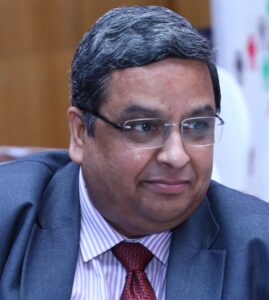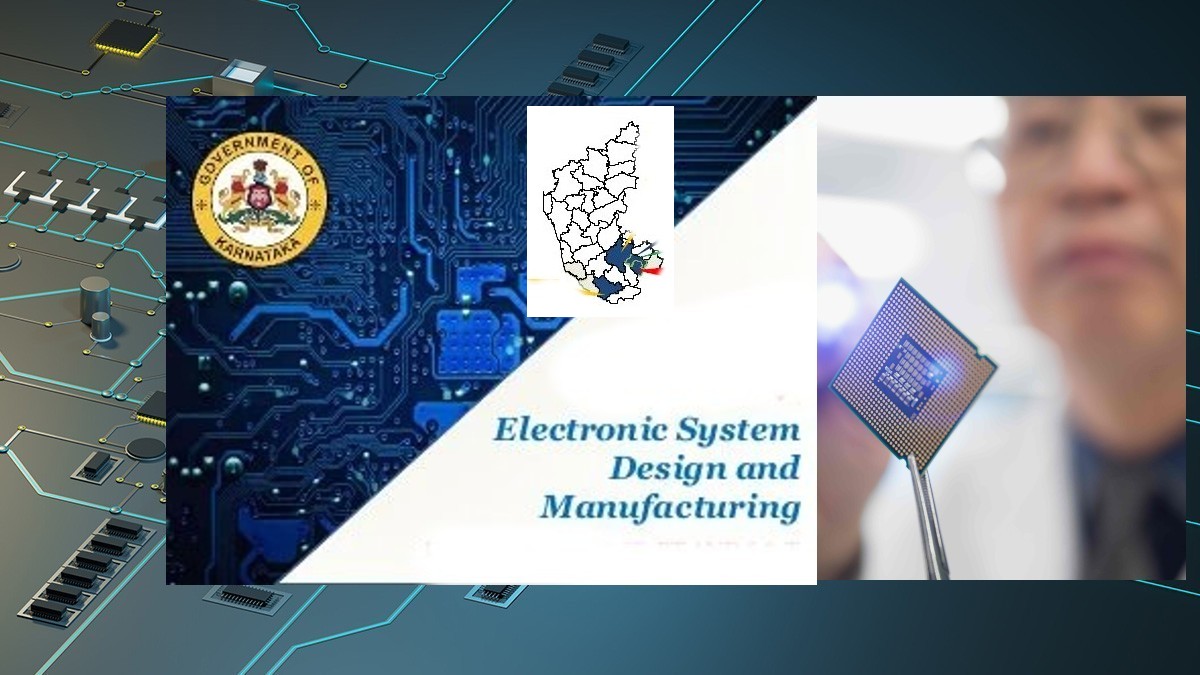Karnataka has led the way in giving the Electronic Systems Design and Manufacturing (ESDM) sector the pride of place in the Indian economy. The sector today accounts for around 3.5% of the GDP of India and ESDM is one of the fastest growing sectors of the Indian economy.
A significant part of its strength is derived from Karnataka, with Bengaluru taking the pride of place in the development of intellectual property and designs for this sector.
There are four key elements to the ESDM story – Semiconductor and Embedded Systems Design, manufacturing of Electronic Components including Printed Circuit Boards (PCB’s), Manufacturing of Electronic Systems, and Education and Skill Development. Karnataka has long led the way in all these segments. As an industry veteran once wryly remarked, “It is hard to imagine about the ESDM sector, without thinking of Bengaluru immediately!”
Semiconductors and Embedded Systems
For long, industry veterans have said that “there is probably no chip in the world which is not ‘touched’ by Bangalore in some way”. Be it VLSI design, verification, development of embedded software including porting of legacy drivers and operating systems, and development of protocols and algorithms – Karnataka, especially Bengaluru, has been the epicenter of this activity.
Though other centres of excellence have emerged around the country, Karnataka remains the automatic first choice of anyone looking at entering this specialized area of ESDM. As per government reports, the State accounts for almost 70% of the VLSI design activities done in India.
The presence of both ODC’s and R&D centres of large technology companies (both MNC’s and Indian companies), as well the presence of several R&D establishments of the Defence R&D Organization (DRDO) has ensured a large pool of highly qualified and experience technology experts for this sector in Bengaluru.
Today, Bengaluru based engineering teams contribute to vital parts of a global product’s design and development. And most likely post-sale customer support, billing and other lifecycle management related issues are handled by the plethora of Software and KPO companies operating in Bengaluru and other parts of Karnataka.
Manufacturing – Components, Systems and Assembly (EMS)
The Karnataka ecosystem has all three components well represented in the State. The Mysuru and Bengaluru clusters have a concentration of Electronic Manufacturing Services (EMS) companies who serve global clients. These range from MSME units with typically a single SMT line, to the likes of Wistron Infocomm who assemble smartphones for Apple and employs tens of thousands of skilled workers at global scales of production.
Printed Circuit Boards (PCB’s) are the “foundation” or bedrock on which all electronics are built. All the components which make a smartphone “smart” are soldered onto PCB’s, as they are for all computing devices. One of the largest PCB manufacturing plants is located in Nanjangud town in Mysuru district. There are several smaller PCB manufacturing plants in and around Bengaluru. Since PCB manufacturing plants require effluent treatment, they are best built in a cluster format so that the costs can be shared.
The presence of several high-technology DRDO labs in Bengaluru has meant that the pool of expertise for design, manufacture and testing of these systems is very high in the city. The product design teams are concentrated in Bengaluru, though clusters of expertise also exist in Mysuru, Hubli-Dharwad, Belgaum etc due to the presence of large design centres of companies in these cities.
Education and Skill Development
With close to 170 engineering colleges located there, Bengaluru has the distinction of being the city with the largest number of engineering colleges in the country. Apart from several private and government engineering colleges, Karnataka also has several famous central government institutions of higher education.
The Nanotechnology centre at the Indian Institute of Science (IISc) at Bengaluru is one of two such facilities in the country and enables cutting edge R&D to be carried out in microelectronics and semiconductors.
Apart from this, there are several ITI’s and Polytechnics in Karnataka, blessing the State with a large pool of skilled technicians. This helps power the technology-intensive industries that are present in the State.
The setting up of the nodal Karnataka Skill Development Corporation (KSDC) as the nodal agency for all skill development activities in the State, brings a sharp focus to skill development efforts.
Thus Karnataka has both blue collar skill training as well as higher order design skills training that is being imparted in the State.
Way forward
Instead of focusing on low-end assembly operations, Karnataka must aspire to go after the more complex parts of the ESDM sector. The State is already hosting a considerable part of the Indian software services industry.
The fact that it is a powerhouse of Innovation, R&D, and product design is well known. The ESDM sector in Karnataka must move beyond low value-add assembly and low end manufacturing, to conceptualizing and designing global products from its centres around the State. The State already has several Centres of Excellence in high tech areas like Robotics, Artifical Intelligence, IoT etc.
There must be greater interaction between industry, academia and government to facilitate the next logical step which is to conceive, design, develop and manufacture complete end-to-end products which will be sold globally. Since most products today involve both hardware and software in almost equal measure, Karnataka’s powerful Software and Hardware design sectors need to come together to work on defining and building next generation products.
The future is bright and future products will be Made in Karnataka-India – with pride.

PVG Menon
Advisor – ESDM; Former CEO of ESSCI
PVG Menon is a veteran of the Electronics and Semiconductor industry. With over three and a half decades of industry experience spanning development and management of technology, public policy advocacy for the ESDM sector and management consulting. He has been the CEO of the Electronics Sector Skills Council of India (India’s apex skill development body for the Electronics industry), as well as the President of the India Electronics & Semiconductor Association. He currently mentors and advises some deep-tech startups.





